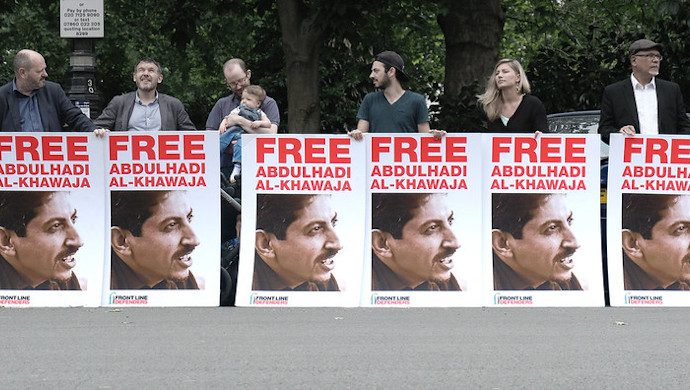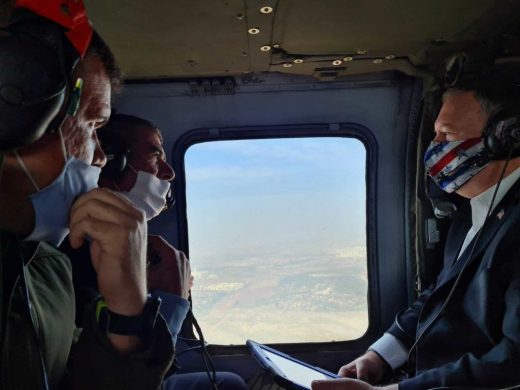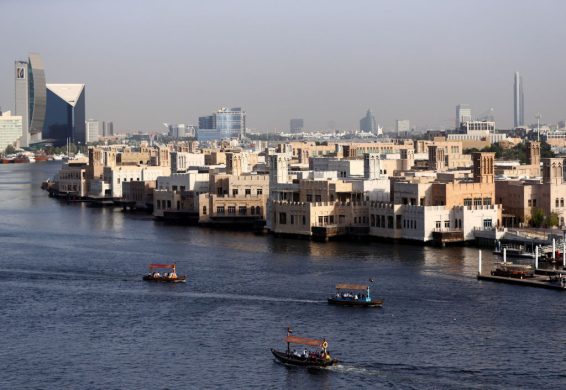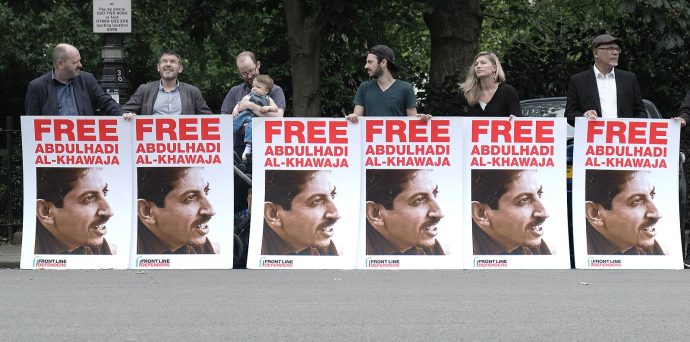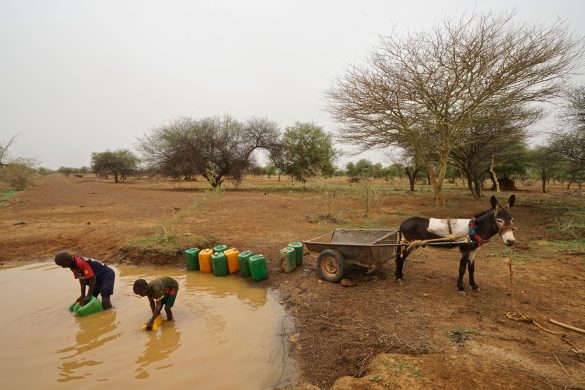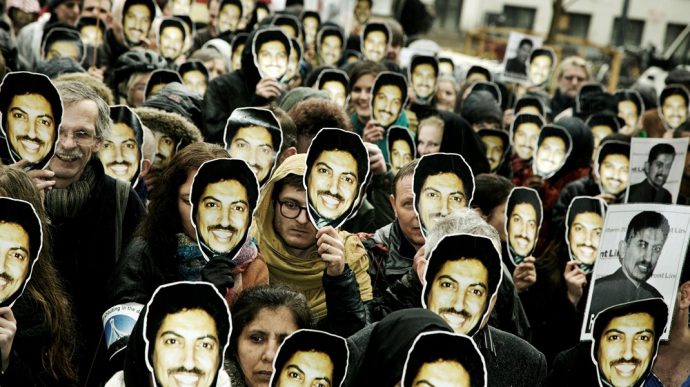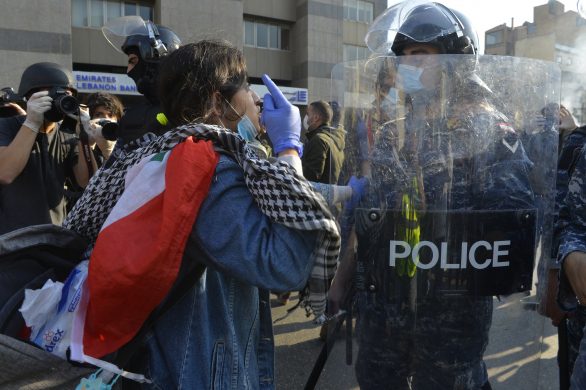En fremtrædende menneskerettighedsaktivist, der var aktiv i Bahrain’s prodemokratiske protester i gaderne, viste sig for en særlig militær domstol forleden, hvor synlige tegn på mishandling og måske tortur var at se på hans krop, siger Human Rights Watch tirsdag.
The activist, Abdulhadi al-Khawaja, was one of 14 defendants, most active with opposition political movements, charged with attempting to “topple the regime forcibly in collaboration with a terrorist organization working for a foreign country.” His wife and daughter spoke with him briefly after the court session, the first time they had been allowed to see him since he was arrested and badly beaten on April 9. They observed multiple facial injuries, and he told them he had four fractures on the left side of his face, including one in his jaw that had required four hours of corrective surgery.
“It appears that Abdulhadi al-Khawaja’s jailers tortured him during the month they held him in incommunicado detention,” said Joe Stork, deputy Middle East director at Human Rights Watch. “Torture or ill-treatment is a serious crime, and Bahraini officials who did or authorized this treatment need to be held accountable.”
Human Rights Watch has documented the routine use of torture by Bahraini security officials during similar interrogations in political and security-related cases.
The National Safety Lower Court postponed resuming the trial until May 12 to allow defence lawyers to meet with their clients, and in some cases to appoint their own lawyers. The case was brought by the military prosecutor, and a military judge presides over the sessions. Bahrain’s police and military have operated under martial law, termed a “state of national safety,” since March 15.


